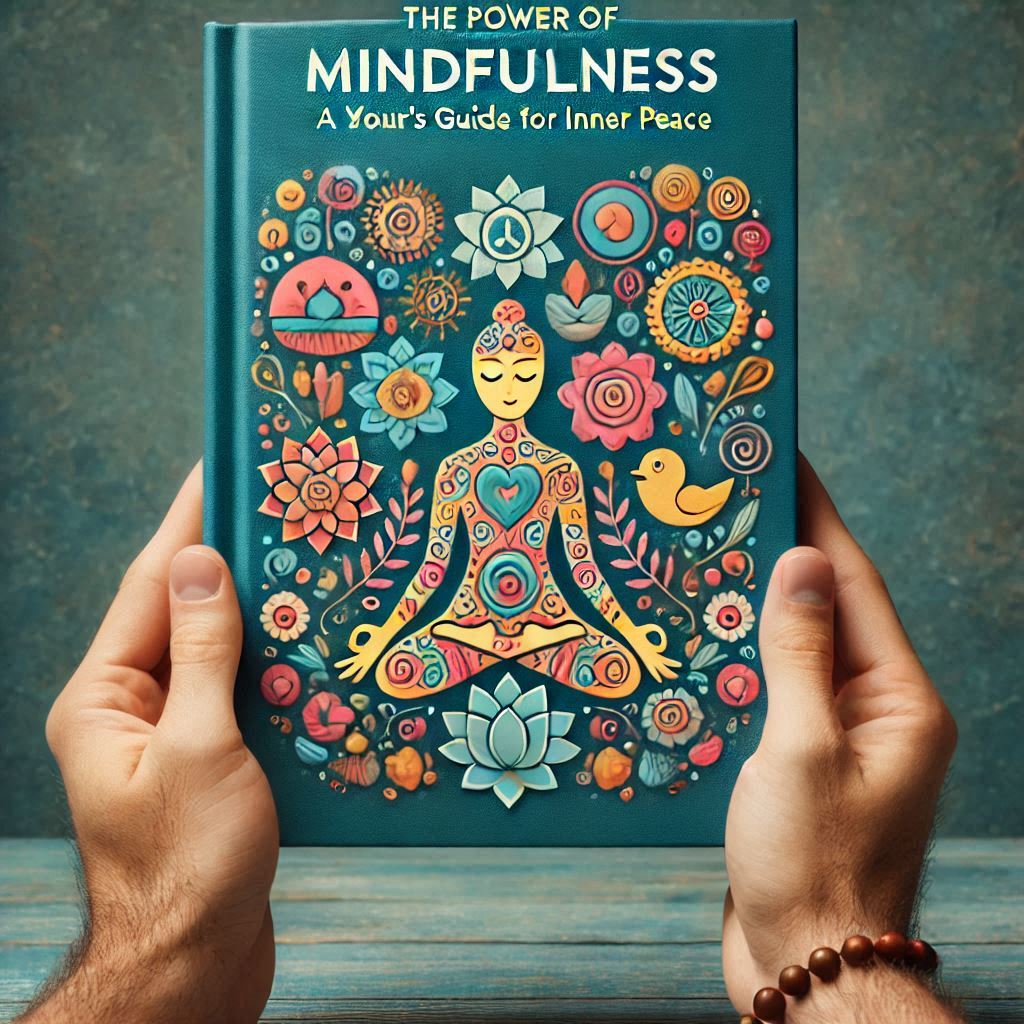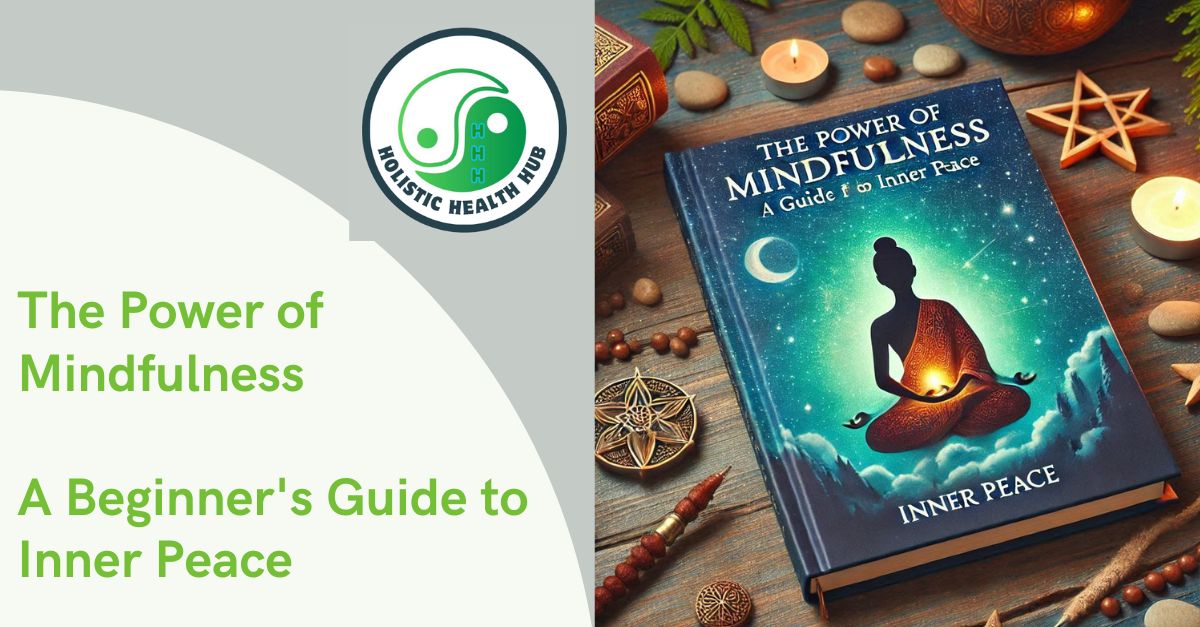Introduction : The Power of Mindfulness: A Beginner’s Guide to Inner Peace
In today’s fast-paced world, it’s easy to get caught up in the hustle and bustle of daily life. The constant barrage of notifications, deadlines, and social media can leave us feeling overwhelmed, stressed, and anxious. Mindfulness, a practice that involves paying attention to the present moment without judgment, can be a powerful tool for managing stress, improving mental health, and enhancing overall well-being.
What is Mindfulness?
It is the practice of being fully present in the moment. It involves paying attention to your thoughts, feelings, and sensations without judgment. When you’re mindful, you’re not dwelling on the past or worrying about the future; you’re simply focused on the present moment.
The Benefits of Mindfulness

It has been shown to have a wide range of benefits, including:
Reduced Stress and Anxiety through Mindfulness
When we’re constantly worrying about the past or future, our minds become cluttered and anxious. Mindfulness, by its nature, anchors us to the present moment. By focusing on the present, we detach from the stress-inducing thoughts of the past and future, leading to a calmer and more peaceful mind.
Improved Mental Health through Mindfulness
Mindfulness can significantly improve mental health by reducing symptoms of depression and anxiety. Regular mindfulness practice helps to challenge negative thought patterns, increase self-awareness, and develop healthier coping mechanisms.
Enhanced Emotional Regulation
Mindfulness helps us observe our emotions without judgment. By understanding our emotions, we can respond to them in a more balanced and constructive way. This can lead to improved relationships, better decision-making, and overall emotional well-being.
Increased Self-Awareness
Mindfulness cultivates self-awareness, allowing us to understand our thoughts, feelings, and behaviors more deeply. This self-understanding can lead to greater self-acceptance, empathy, and compassion.
Improved Focus and Concentration
In today’s world filled with distractions, mindfulness can be a powerful tool for improving focus and concentration. By training our minds to stay present, we can enhance our ability to concentrate on tasks and reduce mental fatigue.
Enhanced Creativity
Mindfulness can unlock creativity by allowing our minds to wander freely without judgment. When we’re not constantly worrying or stressing, our minds are more open to new ideas and insights.
Better Sleep
Mindfulness practices can help relax the mind and body, making it easier to fall asleep and improve sleep quality. By reducing stress and anxiety, mindfulness can also alleviate sleep disturbances.
How to Practice Mindfulness

There are many different ways to practice mindfulness. Here are a few simple techniques to get you started:
Mindful Breathing
Mindful breathing is a simple yet powerful technique to calm the mind and reduce stress. To practice mindful breathing, find a quiet place to sit or lie down. Close your eyes and focus your attention on your breath. Notice the sensation of the air entering and leaving your nostrils. As you breathe in, count to four, and as you breathe out, count to four. If your mind wanders, gently bring it back to your breath.
Body Scan Meditation
A body scan meditation involves bringing your awareness to different parts of your body. Start by focusing on your feet, noticing any sensations, such as warmth or tingling. Gradually move your attention to your ankles, calves, knees, and so on, until you reach the top of your head. This technique can help release physical tension and promote relaxation.
Mindful Walking
It involves paying attention to the sensations of walking. Notice the feeling of your feet touching the ground, the rhythm of your steps, and the movement of your body. You can also focus on your breath and the sounds of nature around you. Mindful walking can help reduce stress, improve mood, and increase awareness of your surroundings.
Mindful Eating
Mindful eating involves paying attention to the sensory experience of eating. Instead of rushing through your meals, slow down and savor each bite. Notice the taste, smell, and texture of your food. This practice can help you appreciate your food more, reduce overeating, and improve digestion.
Incorporating Mindfulness into Daily Life
You can incorporate mindfulness into your daily life by practicing it in short bursts throughout the day. For example, you can practice mindfulness while brushing your teeth, washing dishes, or taking a shower.
Remember, mindfulness is a skill that takes practice. Don’t get discouraged if you find it difficult to stay focused at first. The more you practice, the easier it will become.
By incorporating it into your daily life, you can experience a significant improvement in your overall well-being.
Sources: lifeprax collectiveworld
mindfulness #meditation #mentalhealth #stressrelief #wellness #selfcare #mindfulnesstechniques #mindfulnessmeditation #mindfulnessforbeginners #innerpeace


